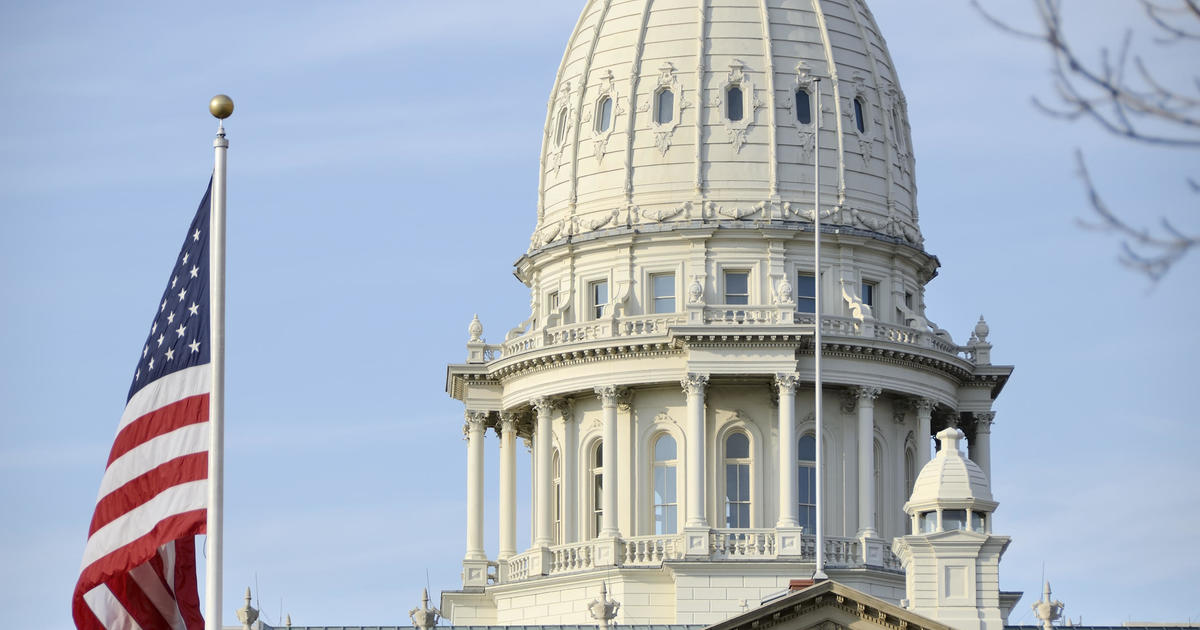Michigan May Require All Schools To Have EpiPens
By DAVID EGGERT, Associated Press
LANSING (AP) - Moms whose kids have severe food allergies are spurring lawmakers to consider stocking every public school in Michigan with special injectors to treat life-threatening allergic reactions.
Bills moving forward in the House would require the schools to have two epinephrine device, or EpiPens, and to train one or two employees to administer the medicine depending on a school's size.
Many children with known severe allergies already bring EpiPens to school. But supporters of the legislation say a quarter of anaphylactic shock incidents in schools occur among students unaware that they have an allergy.
Without a dose of epinephrine to stop swelling in the throat or tongue caused by reaction to foods such as peanuts or from bee stings, unsuspecting kids can die.
"This is a no-brainer. ... We have another relatively simple way to look out for our students," said Amy Derrick of Linden, whose 5-year-old daughter is allergic to peanuts and tree nuts.
She said Alexandra was lucky her first allergic reaction - to a peanut butter cup - happened at home because she was quickly taken to the hospital and treated.
"In almost every story of a fatal anaphylactic reaction, there is one common theme: delayed administration of complete lack of epinephrine," Derrick said, citing the deaths of a 13-year-old girl in Illinois and a 7-year-old girl in Virginia who had allergic reactions to food at school.
The legislation, which won approval in a House committee last week, is being spearheaded in part by the No Nuts Moms Group. Lisa Rutter, a Rochester woman whose son is allergic to nuts, founded the organization two years ago and has seen roughly 50 chapters sprout up across the U.S. and in some other countries.
Proponents say epinephrine should be available similarly to the stocking of emergency defibrillators and fire extinguishers in schools.
"Why wait for a tragedy to happen?" Rutter said.
According to Dr. Matthew Greenhawt, a University of Michigan pediatric allergist and director of research for the school's Food Allergy Center, one out of every 13 children under age 18 suffer from food allergies, or two in an average-size classroom.
The U.S. House in July passed legislation that would give grant preferences to states that come up with policies to make epinephrine available in schools. Twenty-seven states either require or permit school districts to stock the drug.
The Michigan bills would let doctors and pharmacists prescribe epinephrine to school boards. They would be shielded from malpractice lawsuits unless they are recklessly negligent, and teachers and other school workers who use the drug would be protected as long as they act in "good faith."
Many schools would need to train non-nurses to use an EpiPen because Michigan posted just one nurse for every 4,411 students as of 2010, the most recent year studied. That was the highest ratio in the country and well above the recommended 1-to-750 ratio for well students.
Though changes to the legislation have been made to address concerns over training and storage procedures, plaintiff's lawyers say the measure would effectively give immunity to pharmacists even if they provide the wrong medicine or taint it.
"Why lower the standard of care and make our children not have the opportunity for some recourse?" said David Mittleman, a Lansing attorney who said he supports the idea of putting EpiPens in schools.
Doctors respond that EpiPens are prepackaged and there is little to no risk of a pharmacist committing malpractice.
The retail cost of two-pack of EpiPens is $280, Greenhawt said. If the bills are approved, schools could qualify for free EpiPens through a program offered by Mylan Specialty, a pharmaceutical company that markets Epipens in the United States.
Even if free injectors are not available, backers contend the benefit far outweighs a cost they say is minimal.
"When it comes to allergies, minutes matter," said Rep. Lisa Posthumus Lyons, an Alto Republican and sponsor of the legislation who said her daughter had peanut allergies but fortunately grew out of it. "The last thing I want to see is the grief-stricken face of a parent who didn't even know their child had an allergy."
(© Copyright 2013 The Associated Press. All Rights Reserved. This material may not be published, broadcast, rewritten or redistributed.)



